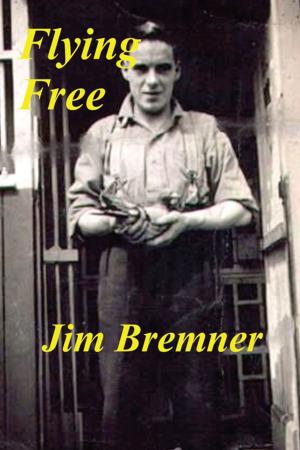| Author: | Jan Kobylarz | ISBN: | 9781452090801 |
| Publisher: | AuthorHouse | Publication: | March 27, 2008 |
| Imprint: | AuthorHouse | Language: | English |
| Author: | Jan Kobylarz |
| ISBN: | 9781452090801 |
| Publisher: | AuthorHouse |
| Publication: | March 27, 2008 |
| Imprint: | AuthorHouse |
| Language: | English |
Invariably for many years, memoirs have had a large group of devoted readers. Thanks to reading memories of people who were active participants or simply observers of great historic events allows us to maintain contact with the past, which usually fades under the pressure of everyday business.
A reader who should pick the self-account by Jan Kobylarz, a signaler of the 7th Regiment of the 3rd Division, will take a fascinating journey into the past marked by some of the most tragic events in history; World War II.
The writer took active part in the war. It engulfed his youthful years and proved to be a tough school of life. As a direct witness of the described events he went in his Polish Army uniform along the great combat route from the right bank Warsaw through Pomerania fortifi ed region, foregrounds of Berlin towards the Laba where he celebrated the end of war.
This frank, simply written soldiers account is impressive for the detail in which the events were memorized. It gives description of dramatic struggle for the east-bank Warsaw borough of Praga, the dearly paid attempt to help the insurgents fi ghting in the westbank part of Warsaw, ferocious fi ght for the town of Kolobrzeg and the region of Pomerania fortifi ed by the nazis. The author takes us along to relive the most diffi cult moments, the happiness for successful actions or the bitter disappointment when He was deprived of meeting the allied brothers in arms on the Laba River.
Besides descriptions of the daredevil combat actions the book is particularly interesting for accounts of work of the so- called political offi cers, popularly called the politruks. Frequent training sessions, chatty lectures, and press briefi ngs were an important elements of the ideological second front. The authors account suggests those lectures, aimed at educating the soldiers, often changed into heated political discussions in which mature opinions mixed with somehow naive trust in good fortune and good will of the politicians who then were making decisions about Polands future.
The author, Jan Kobylarz, has remained in the business of connecting people. Just as 55 years ago when he was using telephone lines to connect units with the command centers, he now makes a connection between the reader and the Great History. His colorful story could became a valuable addition to textbook, academic descriptions of our war time history.
Wladyslaw Sobecki
Invariably for many years, memoirs have had a large group of devoted readers. Thanks to reading memories of people who were active participants or simply observers of great historic events allows us to maintain contact with the past, which usually fades under the pressure of everyday business.
A reader who should pick the self-account by Jan Kobylarz, a signaler of the 7th Regiment of the 3rd Division, will take a fascinating journey into the past marked by some of the most tragic events in history; World War II.
The writer took active part in the war. It engulfed his youthful years and proved to be a tough school of life. As a direct witness of the described events he went in his Polish Army uniform along the great combat route from the right bank Warsaw through Pomerania fortifi ed region, foregrounds of Berlin towards the Laba where he celebrated the end of war.
This frank, simply written soldiers account is impressive for the detail in which the events were memorized. It gives description of dramatic struggle for the east-bank Warsaw borough of Praga, the dearly paid attempt to help the insurgents fi ghting in the westbank part of Warsaw, ferocious fi ght for the town of Kolobrzeg and the region of Pomerania fortifi ed by the nazis. The author takes us along to relive the most diffi cult moments, the happiness for successful actions or the bitter disappointment when He was deprived of meeting the allied brothers in arms on the Laba River.
Besides descriptions of the daredevil combat actions the book is particularly interesting for accounts of work of the so- called political offi cers, popularly called the politruks. Frequent training sessions, chatty lectures, and press briefi ngs were an important elements of the ideological second front. The authors account suggests those lectures, aimed at educating the soldiers, often changed into heated political discussions in which mature opinions mixed with somehow naive trust in good fortune and good will of the politicians who then were making decisions about Polands future.
The author, Jan Kobylarz, has remained in the business of connecting people. Just as 55 years ago when he was using telephone lines to connect units with the command centers, he now makes a connection between the reader and the Great History. His colorful story could became a valuable addition to textbook, academic descriptions of our war time history.
Wladyslaw Sobecki















